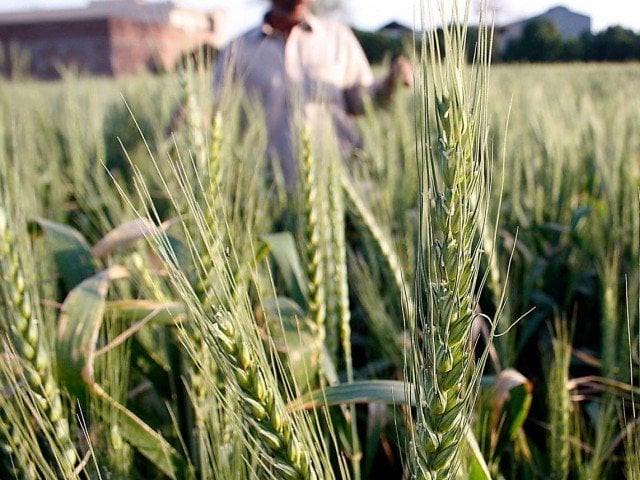Climate-smart farming - a solution to rising temperature
Digital innovation, data science have potential to transform agriculture

PHOTO: FILE
The changing climatic patterns will exert an adverse impact on the productive resources, shorten the agriculture growing periods, increase the risk of pests and diseases, in extreme circumstances, result in floods, droughts and heat waves and ultimately reduce agricultural productivity.
According to a research conducted by Germanwatch, Pakistan is predicted to be one of the countries to be affected the most by the rapidly rising temperatures.
To make matters worse, Pakistan, with the world's sixth-largest population at present, is projected to add nearly 100 million people to its population by 2050, according to the UN World Population Prospects 2019.
‘Food production systems are vulnerable to climate’
"With an ever-increasing population, scarce resources and a changing climate, farmers face unrivalled risk and uncertainty," said Bayer Regional Head for Asia Pacific Jens Hartmann while talking to The Express Tribune.
"Agriculture must become highly efficient and sustainable if it has to provide ample food for the growing world population," he added.
Hartmann held the belief that new solutions were needed to help the farmers face the growing challenges. He listed digital innovation and data science as the areas that had the potential to change agriculture for good.
"These modern tools help farmers collect farm-related data, observe and respond to inter and intra-field variability and minimise wastage of resources, thus enhancing productivity and efficiency," he said.
"Drones, in particular, can be a game changer in this sector," Hartmann stressed. "Equipped with sensors having advanced data analytic capabilities, drones can accurately manage variations in crop fields, optimally plant seeds and apply crop protection while minimising the exposure to risks for farmers," he said.
"Use of agricultural drones is growing rapidly due to their increasing applications such as aerial mapping, plant health monitoring, soil analysis and weed detection."
Giving the example of China, he said the number of agricultural drones used in the country had more than doubled within a year.
Hartmann added that public and private-sector institutions in Pakistan were also working on developing technologies and innovations that could contribute to a climate-smart agriculture.
The use of technologies such as laser land levelling, solar-powered high-efficiency irrigation systems and smart water grids is on the rise.
"In limited cases, even unmanned drones are being used to monitor crops," he said. "The rising shortage of labour is one of the major factors driving the growth of drones."
According to the World Bank, the share of total employment in agriculture has dropped from 43.25% in 1991 to 26% in 2018.
The increasing urbanisation taking place in Pakistan was creating labour shortage in the farming industry, Hartmann pointed out. He called for embracing digital tools and drone technology, which could significantly help the farmers improve crop yield while utilising fewer resources.
"We, as a company, are playing our part for the adoption of this technology by fostering global partnerships with manufacturers and service providers while also conducting trials for crop protection product formulations and developing digital tools that complement the drone technology," he added.
Climate change triggers widespread migration in Pakistan
However, weak regulatory frameworks and intellectual property rights could dissuade businesses from investing in local markets, he said while voicing concern.
He stressed that focused policies and regulations would prove to be instrumental in defining the future use of new technologies.
"Policymakers need to ensure that their prevailing policies evolve with new technologies and innovations. For instance, a robust regulatory and legal framework will greatly facilitate widespread adoption of the drone technology," said Hartmann.
Published in The Express Tribune, December 21st, 2019.
Like Business on Facebook, follow @TribuneBiz on Twitter to stay informed and join in the conversation.



















COMMENTS
Comments are moderated and generally will be posted if they are on-topic and not abusive.
For more information, please see our Comments FAQ